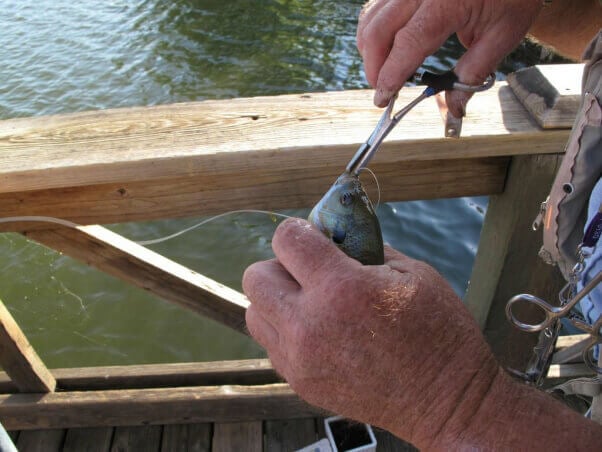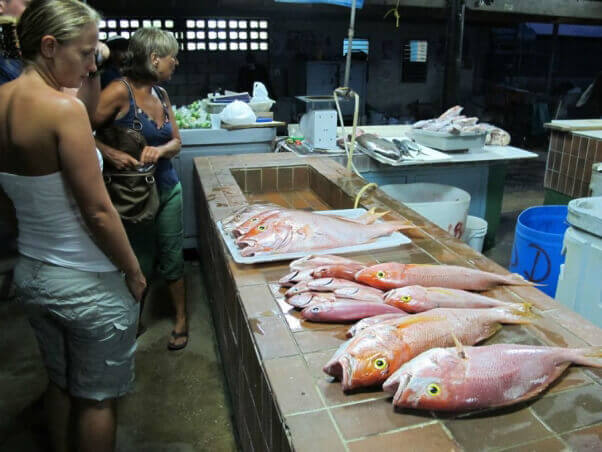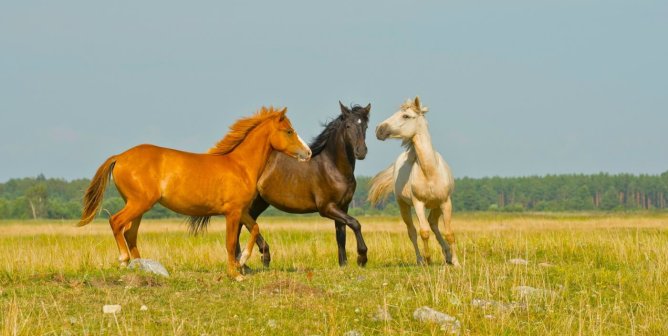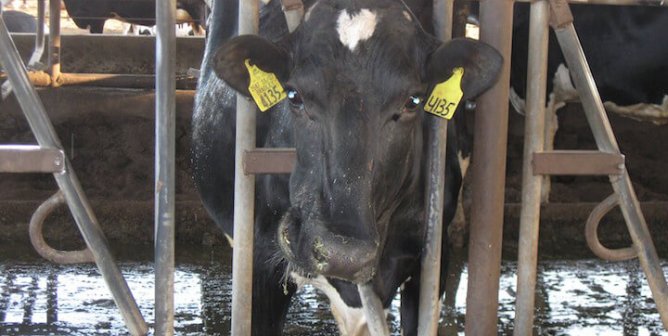Fishing is damaging to animals, the environment, and your health. We’re convinced that after you read this article, you’ll want to toss your rod and reel in the nearest dumpster.
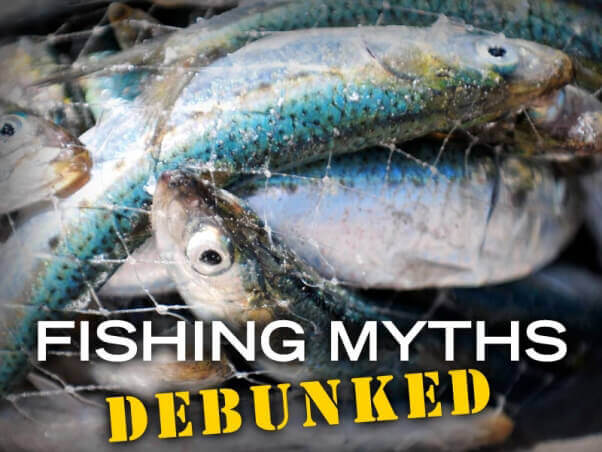
1. Do fish feel pain?
YES!
- Researchers from the University of Edinburgh and the University of Glasgow studied the pain receptors in fish and found that they are strikingly similar to those of mammals. The researchers concluded that “fish do have the capacity for pain perception and suffering.”
- We can tell when fish are experiencing pain. They can lose their appetite, their gills might beat faster, and they might rub the affected area (or areas) against some surface.
- Dr. Sylvia Earle, one of the world’s top marine biologists, has said, “You know, fish are sensitive, they have personalities, [and] they hurt when they’re wounded.
2. Is it a bad idea to teach kids to fish?
YES!
- Deborah Kay Steinken, animal-welfare reporter, activist, and domestic violence counselor, explains, “Children who witness cruelty to animals experience psychological and emotional damage that compromises their empathy development because they become desensitized to feelings of kindness, hurt, pain, and suffering in themselves and other living beings.”
- Steinkin also addresses the idea of learned behavior by explaining, “Constant exposure to animal abuse can cause children to engage in abusive reactive behaviors and posttraumatic reenactments perpetrated against animals or younger siblings.”
- Joaquin Phoenix describes a fishing experience that he had at the age of 3: “The animal went from a living, vibrant creature fighting for life to a violent death. I recognized it, as did my brothers and sisters.”
3. Does catch and release harm fish?
YES!
- Hooked fish endure not only physical pain but also terror. When they’re removed from their natural environment, they start to suffocate.
- Once out of water, fish’s gills often collapse and their swim bladders can even rupture because of the sudden change in pressure.
- Anglers often try to retrieve hooks by shoving their fingers (or even a pair of pliers!) down the fish’s throat. This tactic rips out not only the hook but also part of the fish’s throat and guts as well.
- When fish are handled by people, the protective coating on their bodies is damaged. This makes them more vulnerable to infection, parasites, and predators if they’re thrown back into the water. The coating also protects against bacteria, fungi, and parasites.
4. Is consuming fish bad for your health?
YES!
- Fish flesh stores dangerous contaminants, including PCBs, which can cause liver damage, nervous system disorders, and fetal damage; dioxins, which have also been linked to cancer; and radioactive substances, such as strontium-90.
- Studies report that fish can contain enough mercury to cause detrimental developmental effects in unborn fetuses, including a higher risk of developing attention deficit hyperactivity disorder.
- People who think that they’re avoiding mercury dangers by eating farmed fished could be wrong. Scientific American explains that fish-eaters “can still absorb mercury, since most fish farms are themselves located in the ocean, just close to or abutting the shoreline. Farmed fish can also absorb PCBs and dioxins, as the near-shore waters they occupy are the first stop for run-off from land-based sources of pollution.”
5. Does fishing harm the environment?
YES!
- The Environmental Protection Agency reports that high numbers of recreational boaters are causing damage to lakes, coastal waters, and rivers, including “high toxicity in the water; increased pollutant concentrations in aquatic organisms and sediments; increased erosion rates; increased nutrients, leading to an increase in algae and a decrease in oxygen … and high levels of pathogens.”
- Every year, anglers leave behind a trail of tackle victim that includes millions of birds, turtles, dolphins, and other animals who suffer debilitating injuries after they swallow fishhooks or become entangled in fishing lines. Wildlife rehabilitators say that discarded fishing tackle is one of the greatest threats to aquatic animals.
- Lead sinkers poison wildlife. The New York State Department of Environmental Conservation reported that 30 percent of documented loon deaths were caused by lead poisoning.
Thankfully, there are many low-impact activities you can enjoy outdoors! Check out our cruelty-free guide to camping, or try any of these activities:
- Canoeing or kayaking
- Trail-walking, hiking, or backpacking
- Mountain-biking (on designated trails)
- Windsurfing or sailing
- Identifying birds, trees, or wildflowers
- Gardening
- Picnicking (Here’s how to have an awesome picnic.)

